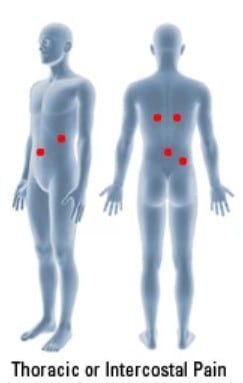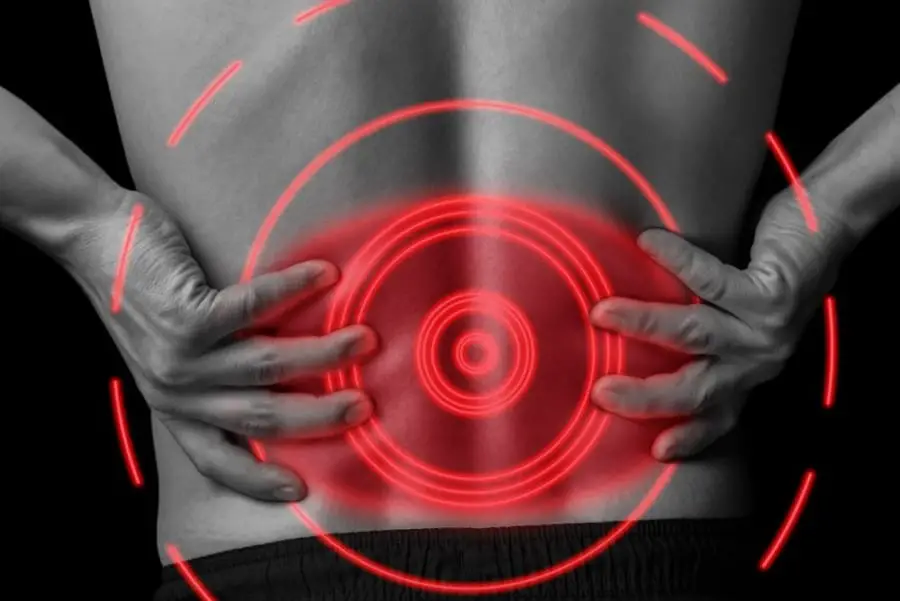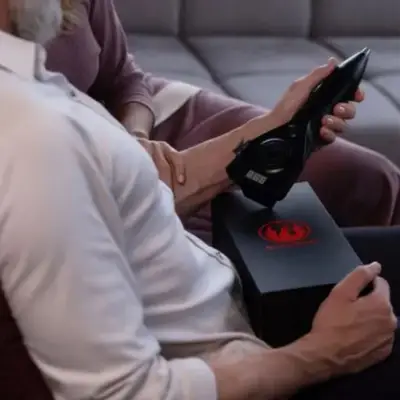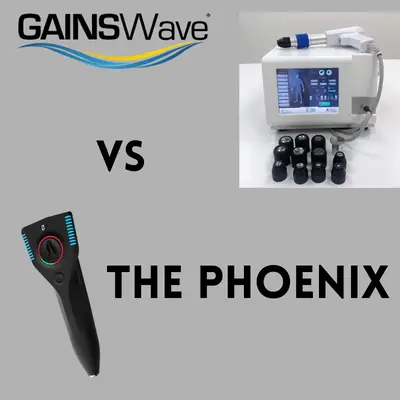If you have kidney pain, you’ve probably tried several methods for pain relief and are researching which methods will work for you. And along the way, you may have heard of TENS units that use electrical currents to treat pain.
So, are TENS units effective for treating kidney pain? Although there is no guarantee. The pain-relieving effects of TENS units have mixed results from different users. Some report that TENS therapy works wonders, while others say they have never found any relief. Since they are safe to use it might be worth to give it a try and see how it works for you.
There’s very little evidence if TENS therapy is effective for kidney pain. This article will explain how TENS units relieve pain, where they can be used, and what studies have been done to test TENS therapy with kidney pain.
How Do TENS Units Treat Pain?
TENS is the acronym for transcutaneous electrical nerve stimulation. The unit sends electrical currents to your body through electrodes, which are sticky patches you place on your skin. The electrodes stick to your skin with adhesive, so no needles are involved with this therapy.
The electrical currents travel from the machine, through the wires, to the electrodes, and are then transferred to your nervous system. The currents stimulate your nerves and block out pain signals, which essentially tells your brain, “there’s no pain here.”
To better understand how this works, you need to understand why your body experiences pain.
When you stub your toe or get burned on the stove, you feel pain. That’s your body’s way of telling you that something isn’t right. The pain in your toe tells your brain that your body has collided with something. The pain when you get burned is alerting you that you’re touching something hot. Without pain, you could injure yourself and not even know it.
When you’re using a TENS unit, the electrical stimulation stops the pain signals from reaching your brain. So, your brain can no longer detect the signals, and it’s as if you’re free of pain.
Because of the way it works, TENS therapy can only ease the pain; it can’t erase it. This is why some people only get relief while they are actively using the unit. It’s possible to continue feeling relief after the treatment, but you shouldn’t expect it to make your pain go away completely.
What Types of Pain Can I Use It For?
TENS therapy is a versatile treatment that can be used for several types of pain. Types of pain you can use a TENS unit to relieve include:
- Back pain: TENS units are often used by chiropractors and physical therapists to treat back pain. It’s commonly used for lower back pain but can also be used on the upper back. The NHS doesn’t recommend TENS therapy because there isn’t enough evidence to prove that it’s effective.
- Shoulder and neck pain: Electrodes can be placed on the shoulders and the back of the neck to treat pain. It generally isn’t recommended for the neck because it can be harmful if used on the front of the throat.
- Leg pain: TENS therapy can be relieving for those who suffer from sciatica, tendonitis, or knee pain. Electrodes are placed around the joints for treatment.
- Headaches and facial pain: It isn’t recommended to use TENS units on your face, as it can be dangerous. Placing them over your eyes can cause pressure to build up and injure you. A medical professional might recommend using the therapy for headaches or facial pain if you are carefully monitored while using it.
- Chronic pain: Those who suffer from arthritis or fibromyalgia may find relief from using TENS therapy. Low frequencies and several sessions a week are often recommended for pain management.
- Abdominal pain: TENS therapy might relieve various forms of abdominal pain, including menstrual cramps, labor pain, and pelvic floor dysfunction. Pregnant women are advised not to use TENS therapy because the long-term effects of electrical currents on the baby are unknown.
There are many other areas that TENS therapy can be used for. The treatment has been around since the 1970s, but very little research is available about long-term effects and whether or not it’s beneficial.
If you want to try TENS therapy for yourself, consult with a doctor first to make sure it won’t harm you. You can also discuss electrode placement and frequency settings, so you don’t inadvertently injure yourself.
Does TENS Therapy Work for Kidney Pain?
There is very little information available about how TENS therapy affects kidney pain and whether or not it’s effective. It might be able to relieve some pain, but it will depend on the person, as it does with most other treatments.
Kidney pain is a result of an underlying condition, such as:
- Blood clots or hemorrhages
- Cancer or tumors
- Cysts
- Infection
- Polycystic kidney disease
If you have kidney pain, you should seek immediate medical attention. Once your doctor has determined your condition and has provided you with medication or a treatment plan, you might be able to use a TENS unit in addition to your prescribed treatment.
A study on kidney donors tested TENS therapy on the donors after the procedure was completed. The results showed that the patients that received TENS therapy benefitted and had some relief from postoperative pain.
While this study was conducted on people who donated their kidney, it does show that TENS units can be used in the area without causing any harm. TENS users are warned not to place electrodes near their hearts because the electrical currents could interfere with the heartbeat. This study shows that it’s safe to place the electrodes near the kidneys.
TENS Unit Placement For Kidney Stones

This chart shows that you can that you can place electrodes on your abdomen for thoracic pain. This placement might benefit you if you have kidney pain. You should speak to your doctor before you try anything out on your own.
It’s important to remember that TENS therapy is different for everyone because the treatment doesn’t stop the pain. It only makes your brain think that there isn’t any pain in the area by interrupting the pain signals that are being sent. This method might not work for your brain and body, though it might work for someone else.
If you are seeking TENS therapy as a cure to your kidney pain, it most likely won’t take the pain away. It might be able to control it and make it more tolerable, however. TENS therapy might help you if you have kidney stones since this condition usually only requires drinking plenty of water and pain medication as you wait for the stone to pass. A TENS unit, in addition to medication, might make the process more bearable.
Conclusion
A TENS unit might be an effective treatment for kidney pain. There’s very limited evidence available, and it’s not yet proven that TENS therapy is an effective pain management system. Some people say it helps them, while others say it doesn’t.
The electrical currents can interfere with implanted devices such as pacemakers, so if you have one of these or some other kind of implant, you should avoid using a TENS unit. You should always speak with a doctor before you purchase a TENS unit so they can direct you with how to use it, which unit to purchase, and whether or not it might help you.
Sources
- Healthfully: Contraindications for a TENS Machine
- How To Relief: TENS Unit: Indication, Contra-indication, & Dangers
- LG Med Supply: What are the Types of Pain that a TENS Unit Treats?
- Mayo Clinic: Kidney Pain
- Mayo Clinic: Kidney Stones
- NCBI: Effects of transcutaneous electrical nerve stimulation on pain, walking function, respiratory muscle strength and vital capacity in kidney donors: a protocol of a randomized controlled trial
- tensunits.com: TENS Electrode Placement Chart
- The Good Body: TENS Unit Uses: The Definitive Guide
- UI Hospitals & Clinics: Transcutaneous electrical nerve stimulator (TENS)





One response to “TENS Unit for Kidney Pain: Is It Effective?”
[…] have shown that using a TENS unit can be an effective treatment for phantom limb pain. The reason why TENS units are so effective is because they are able to send small amounts of […]